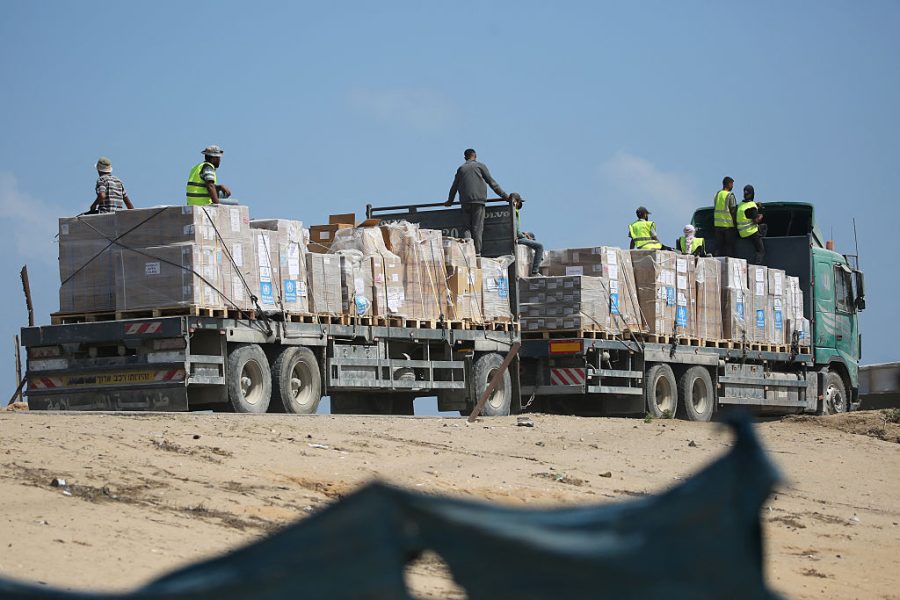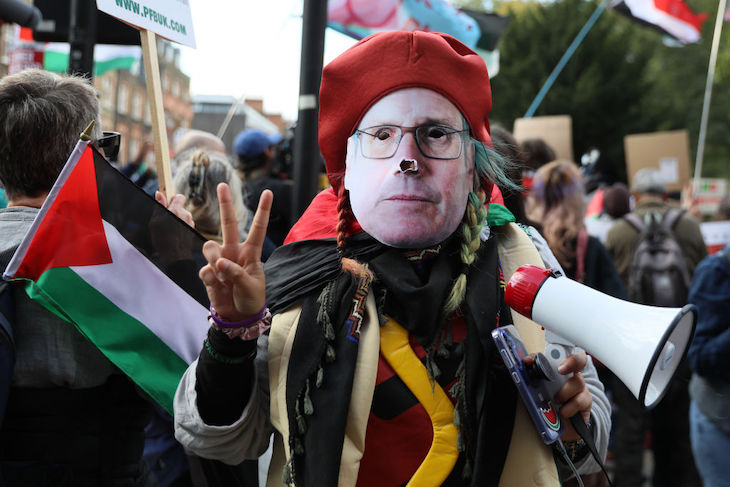Unicef has confirmed it in black and white: armed men in Gaza hijacked aid trucks at gunpoint, stealing ready-to-use therapeutic food meant for thousands of severely malnourished infants. According to the UN, at least 2,700 children have been deprived of life-saving nutrition as a result. And yet, the world barely blinked.
When Israel takes military action, the scrutiny is immediate and unforgiving. When images of hungry children emerge from Gaza, they are broadcast with relentless urgency, almost always with the implicit or explicit framing that Israel is to blame. But when terrorists intercept UN aid trucks, seizing food for their own infants in need, that story scarcely registers.
This incident reveals not merely a failure of aid delivery, but a failure of moral clarity
Where is Keir Starmer’s public determination to punish the perpetrators? Where are the front pages brimming with rage? Where is the BBC’s solemn-voiced, tear-jerking report? Even Unicef, in its carefully worded statement, declined to name the perpetrators or describe where the stolen food was taken. The aid was ‘diverted’. The trucks were ‘commandeered’.
Contrast this silence with the tone adopted by the UK’s permanent representative to the UN, Ambassador Barbara Woodward, in her July address to the Security Council. ‘The Israeli aid system is inhumane, ineffective, dangerous and fuelling instability,’ she said. She condemned the IDF and praised the UN’s ‘brave efforts’ to deliver aid. Hamas, she said, was ‘is exploiting this disorder’. No explicit mention was made of aid theft or of the terror group’s systemic exploitation of the aid economy for profit and power.
This pattern is not unique to the UK; it reflects a broader international consensus that has become ideologically and diplomatically entrenched: humanitarian suffering in Gaza is to be framed as an Israeli failure, regardless of the facts. Any Palestinian terrorists deliberately causing suffering to their own are to be ignored at all costs.
But the facts are stubborn. This latest incident is not a deviation. On Saturday, reports confirmed by Cogat, Israel’s military coordination body for the territories, described another deliberate sabotage of aid efforts: Hamas terrorists are said to have fired at UN teams working to open a new humanitarian corridor in southern Gaza. Armed men seized UN vehicles and reportedly used them to blockade roads meant to carry food and medicine. It is all part of a deliberate strategy to obstruct aid distribution in order to engineer a crisis and externalise blame.
If Israel were truly trying to starve Gaza, why would it coordinate with the UN to open new routes for food and shelter supplies? Why would it allow in therapeutic nutrition and medical equipment that is then stolen or intercepted en route by Palestinian terrorists? The uncomfortable truth is that Israel’s logistical and military apparatus has, despite the war, continued to facilitate aid, often at the expense of its own operational freedom, in a desperate attempt to separate civilians from combatants. It is the terror groups embedded within the civilian population who blur that line.
There is a deeper rot exposed here: the moral degradation of the aid discourse itself. Humanitarian law is predicated on neutrality and civilian protection. But in Gaza, that framework is regularly distorted by a UN system unwilling to hold Palestinian actors accountable, either out of fear, political alignment, or institutional corruption. The result is grotesque: children are being deprived of food by the very actors who claim to be their protectors, shielded from scrutiny by a media and diplomatic class that prefers to heap condemnation on the democratic, free nation acting to remove that very evil which threatens both Israelis and its own population.
This incident reveals not merely a failure of aid delivery, but a failure of moral clarity. The exploitation of humanitarian catastrophe as a tool of asymmetric warfare is an indictment not only of the groups who orchestrate it, but of the international actors who enable it through selective outrage and rhetorical cowardice. Armed Palestinians hijacking food destined for malnourished children ought to provoke global condemnation. Instead, we get silence, or worse, deflection.
The price of this silence is not merely reputational. It is paid in infant suffering, in the collapse of trust, and in the corrosion of norms meant to govern even the most complex and trying of conflicts. Until the international system finds the courage to name all those obstructing aid, regardless of political convenience, it cannot credibly claim to defend humanitarian principles. And until the media acknowledges that Palestinian armed groups, not just Israeli policies, are contributing to Gaza’s humanitarian challenges, it will remain an unreliable and bad-faith participant in the propaganda war.
Meanwhile, Britain, France and others press forward with plans to ‘recognise’ an imaginary Palestinian state – an impossible and undesirable entity that in its current form exists only as an idea, not as a functioning polity. And what is the fantasy state they are recognising? One in which a terror group starves the country’s children for political point-scoring? That obstructs aid corridors with armed force? That creates and exploits its own population’s misery as a weapon of diplomacy? To recognise this as a state is to recognise the strategy of hostage governance. It is to endorse a political culture in which children’s hunger is not a crisis to be solved, but a tool to be cynically and ruthlessly engineered and leveraged.
If that is the foundation upon which Europe intends to recognise statehood, then it is not recognising a future of peace and sovereignty, but entrenching a system of impunity, cruelty, and permanent conflict.
The silence that surrounds these crimes is not born of ignorance, but of evasion. To see aid hijacked at gunpoint, to watch humanitarian routes blocked by brutal terrorists, and to remain mute is a transparent betrayal of truth. Despite international political and media accusations, it seems it is not Israel which abuses aid for strategic gain after all. It is Hamas, the UN, European governments and the media. If their outrage were truly about alleviating hunger, the loudest voices would be condemning those who use violence to block aid, not those who go to unprecedented lengths to provide it.








Comments